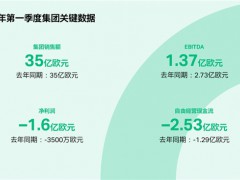據能源經濟6月23日消息稱,Wood Mackenzie的數據顯示,到2030年,亞太地區在可再生能源發電方面的投資可能會比過去10年增加一倍,達到1.3萬億美元,令化石燃料發電支出相形見絀。預計化石燃料發電支出每年將下降約25%,至540億美元。
該咨詢公司的研究總監Alex Whitworth說:“亞太地區的發電投資處于世界領先地位,預計在本十年將達到2.4萬億美元,其中可再生能源發電的投資占一半以上。”
Woodmac周二在一份報告中稱,日本、印度、韓國是亞太地區可再生能源投資(包括太陽能和風能)的主要貢獻者,平均每年新增約140吉瓦發電能力。
相比之下,Woodmac表示,在亞太地區能源轉型的領頭羊澳大利亞的可再生能源投資將在未來五年內下降60%,但到2030年將回升至平均每年70億美元。
Woodmac高級分析師Le Xu說:“該國正在關閉老化的燃煤電廠,面臨可靠性和成本挑戰的時間比其他亞洲國家至少早10年。”
Whitworth說,到2030年,煤炭預計將占亞太地區化石燃料投資的55%,到2030年,由于天然氣占主導地位,煤炭將縮減至30%。
到2025年,該地區電力部門的碳排放可能達到73億噸的峰值,相當于人均1.8噸,不到大多數發達國家水平的一半。
朱佳妮 摘譯自 能源經濟
原文如下:
Asia Pacific renewable investments to double to $1.3 trillion by 2030
Asia Pacific investments in renewable energy generation by 2030 may double to $1.3 trillion from the previous decade, dwarfing fossil fuel power expenditures that are expected to drop by about 25% to $54 billion annually, according to Wood Mackenzie.
"Asia Pacific power generation investments are leading the world and expected to hit $2.4 trillion in the current decade, with renewables accounting for over half...of power investments," the consultancy's research director Alex Whitworth said
Japan, India, South Korea are among the top contributors to renewable investments, which include solar and wind, in Asia Pacific with an average of about 140 gigawatts of additional capacities annually, Woodmac said in a note on Tuesday.
By contrast, Woodmac said renewable investments in Australia - Asia Pacific's leader in the energy transition - will drop by 60% in the next five years, but pick up again to average $7 billion a year in 2030s.
"The country is closing ageing coal-fired plants and facing reliability and cost challenges at least 10 years earlier than other Asian countries," said Woodmac senior analyst Le Xu.
Coal is expected to make up 55% of Asia Pacific's fossil fuel investments until 2030, before shrinking to 30% in the 2030s as gas dominates, said Whitworth.
The region's carbon emissions from power sector is likely to peak at 7.3 billion tonnes by 2025, equivalent to 1.8 tonnes per person or less than half the level of most developed countries.
免責聲明:本網轉載自其它媒體的文章,目的在于弘揚石化精神,傳遞更多石化信息,并不代表本網贊同其觀點和對其真實性負責,在此我們謹向原作者和原媒體致以敬意。如果您認為本站文章侵犯了您的版權,請與我們聯系,我們將第一時間刪除。







